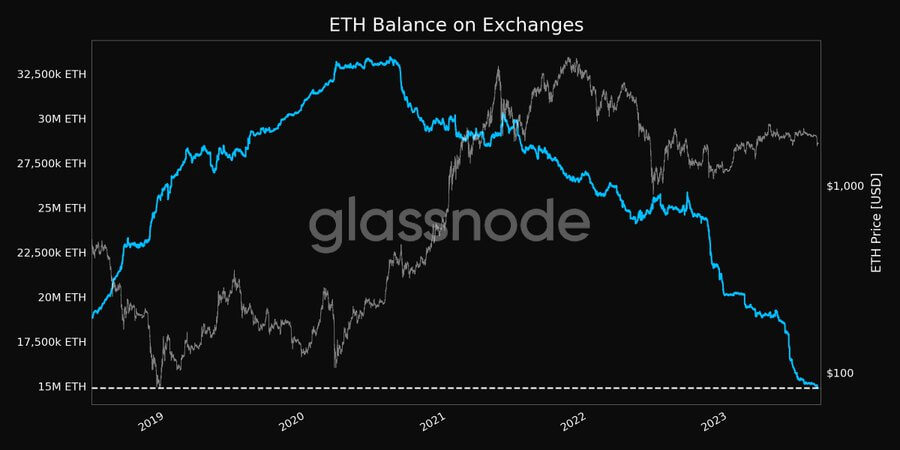Grayscale challenges SEC on Blackrock filing to ensure fair approval of Bitcoin ETPs

Cryptocurrency asset manager Grayscale Investments has sent a letter to the U.S. Securities and Exchange Commission (SEC) arguing that new spot Bitcoin ETF filings such as Blackrock’s, based on prior rulings, should not be approved according to precedent.
The letter argues that the regulator must approve any spot bitcoin exchange-traded products (ETPs) in a consistent and even-handed manner, commenting that including a surveillance sharing agreement with Coinbase is insufficiently different from previously rejected filings.
However, if the recent ETF filings are approved, Grayscale requests its rejected application also be approved simultaneously to allow for the conversation of GBTC into a spot Bitcoin ETF.
Grayscale Bitcoin Trust conversion
Grayscale operates the Grayscale Bitcoin Trust (GBTC), which holds Bitcoin directly in trust. Grayscale initially filed to have GBTC listed for trading on the NYSE Arca exchange but was rejected by the SEC in 2022, a decision the firm is now challenging in court.
In the past month, asset managers have submitted several other spot Bitcoin ETP filings to the SEC, including BlackRock, ArkInvest, and VanEck. These new filings mention planned surveillance-sharing agreements with crypto exchange Coinbase. Some observers think such agreements could pave the way for SEC approval this time around.
However, Grayscale highlighted, the SEC has previously indicated that surveillance-sharing with an unregulated trading platform like Coinbase does not alone satisfy the criteria for approving a Bitcoin ETP. So if the SEC now reverses course based on the Coinbase agreements, this would represent an inconsistent change in policy. The letter states,
“But as the Commission knows, the possibility of a surveillance-sharing agreement between a listing exchange and a spot bitcoin trading venue is not a new idea. Indeed, Grayscale discussed the viability of this approach with Commission staff in 2019.”
According to Grayscale’s letter, surveillance-sharing with a regulated Bitcoin futures market such as the Chicago Mercantile Exchange (CME) is by itself enough to meet regulatory requirements for Bitcoin ETPs, according to SEC rulings on Bitcoin futures ETFs. Grayscale cited the below statement from the SEC.
“CME’s surveillance can reasonably be relied upon to capture the effects on the CME bitcoin futures market caused by a person attempting to manipulate the proposed futures ETP by manipulating the price of CME bitcoin futures contracts… indirectly by trading outside of the CME bitcoin futures market”
The letter continued to state the above makes clear that “the Commission recognizes that CME’s surveillance can capture the effects of trading on bitcoin spot markets.”
Given this precedent, Grayscale argued that if the SEC is open to considering Coinbase agreements as relevant, it must allow amendments to previously rejected filings like GBTC to include similar agreements as well.
The SEC should then approve all spot Bitcoin ETPs simultaneously to avoid unfair discrimination between issuers, satisfying principles of investor protection, fairness and due process. Specifically, the letter reads,
“Having previously rejected the argument that a surveillance-sharing agreement with a spot bitcoin trading venue would, in whole or in part, satisfy the Commission’s requirements for approving a spot bitcoin ETP, if the Commission decides to change course and approve one or more of the above-referenced spot bitcoin ETPs on this basis, it must do so in a fair and orderly manner—a manner that prioritizes the interests of investors, in particular the nearly one million who currently hold shares in the Trust.”
In essence, Grayscale contends the SEC must evaluate spot Bitcoin ETP proposals consistently, without abruptly altering course to benefit newer filings over prior ones.
The letter illustrates how the status of Bitcoin ETPs in the U.S. remains complex and contentious, with regulators and industry participants interpreting policy cues in very different ways. However, it may be seen by some as throwing cold water on the fire lit by institutional giants such as Blackrock’s Larry Fink pushing for better access to spot Bitcoin-exposed financial products.



